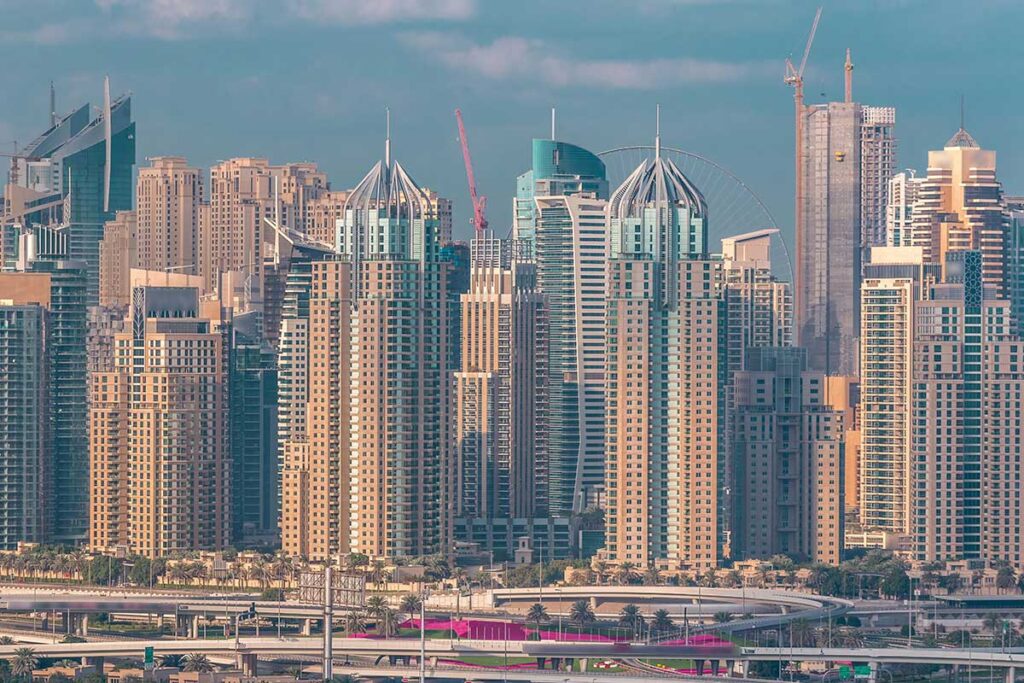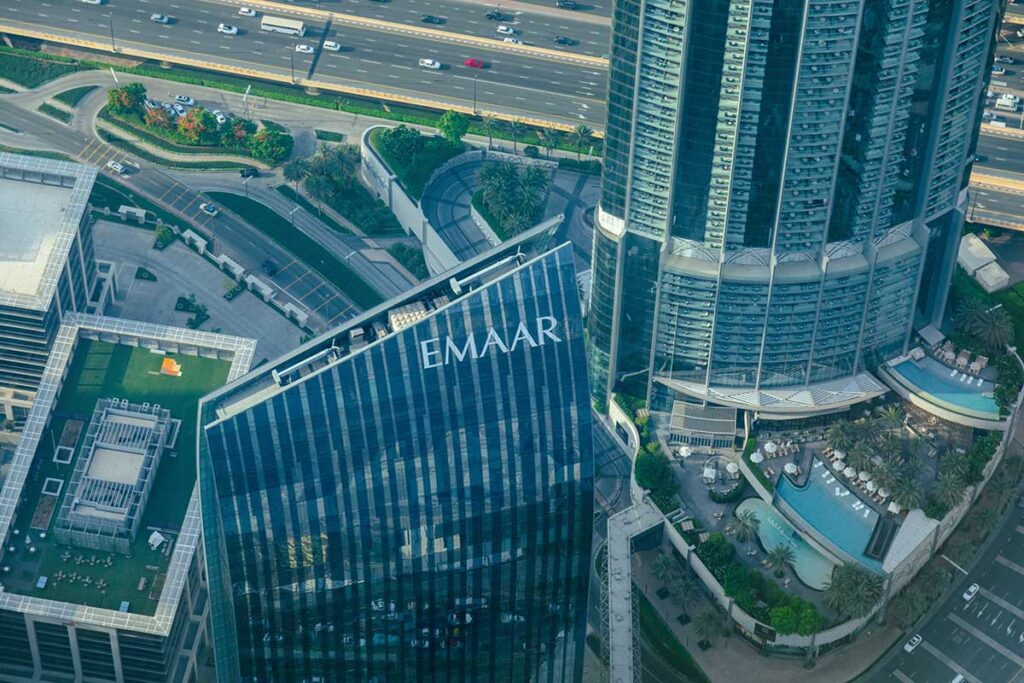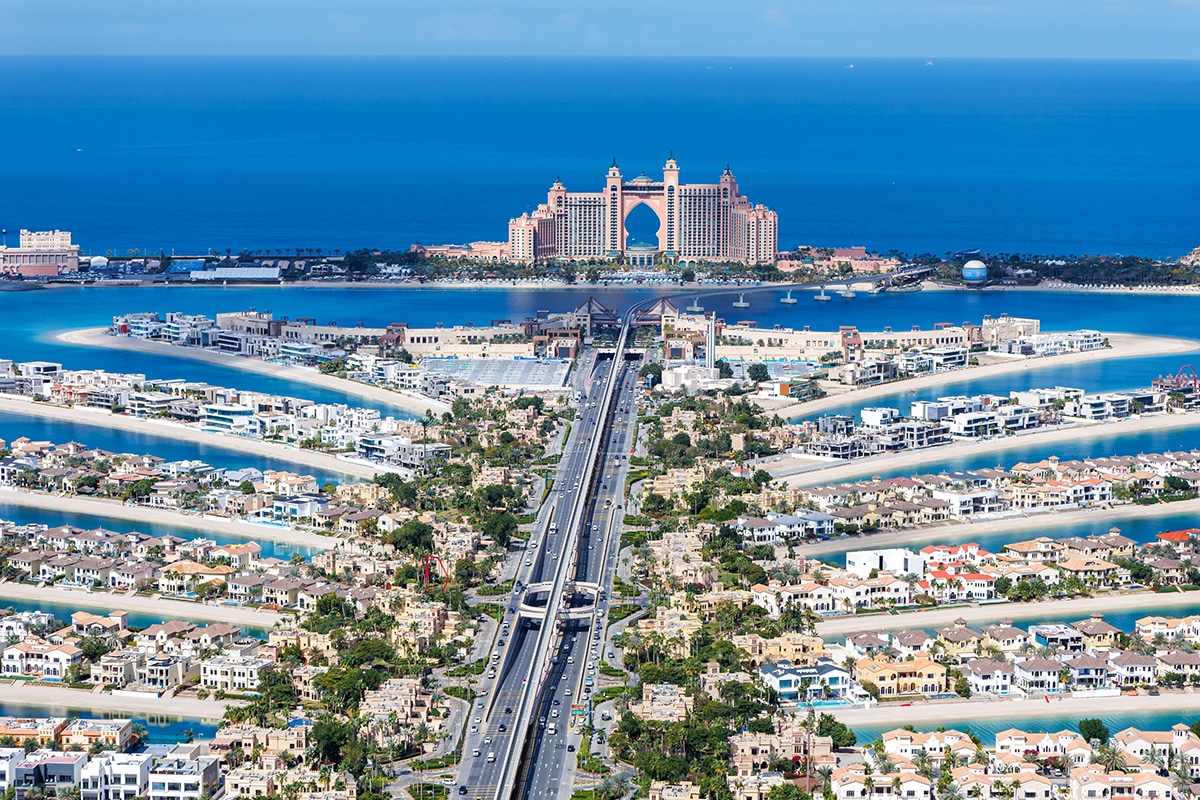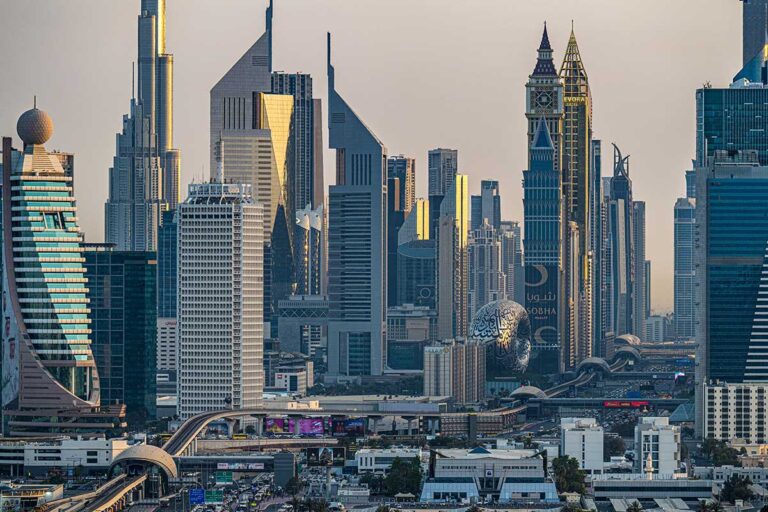Dubai’s property market is facing a shift as new digital platforms allowing direct buyer-seller connections threaten to make traditional real estate brokers obsolete, experts told Arabian Business.
This shift mirrors how online booking services disrupted the travel agency industry over a decade ago. Some believe the real estate industry is now facing its travel agency moment.
“We’re not approaching disruption, we’re already in it,” said Ainsley Duncombe, founder of Off Market Listing Dubai and a 17-year veteran of the emirate’s property scene. “Think back to the travel industry. How often do people still use traditional travel agents? That same transformation is already underway in real estate.”
His comments come as Dubai witnesses a surge in digital platforms that connect buyers and sellers directly, bypassing the traditional broker model which has long dominated property transactions.
The new matchmakers
At the forefront of this shift is BuyHit, a platform founded by former professional footballer Thomas Gasmi, who entered Dubai’s real estate sector in 2013. The platform, which launched in April last year, operates with a dating app-inspired interface where users “swipe” on properties they are interested in.
“When you buy property in Dubai, your reflex is to go on Property Finder,” Gasmi told Arabian Business, referring to the region’s dominant property portal. “We want to create the same reflex on your phone.”
The key difference is that BuyHit charges a flat fee of AED 5,000 (approximately $1,361) per transaction regardless of property value. This is in stark contrast to the traditional commission model where brokers typically collect 2-4 per cent of the property’s value.
“If you sold any villa on the Palm, the minimum cost is between AED 500,000 up to AED 1 million as a commission, whereas here it will be only AED 5,000,” he explained.
BuyHit’s app incorporates verification measure similar to Apple ID which requires phone verification and email confirmation to ensure user authenticity.
The company has already secured partnerships with several developers, including Select Group, which has provided BuyHit with exclusive access to certain inventory. The platform currently has approximately 100 registered secondary market listings and around 400 off-plan properties, totalling over 500 listings on the platform.

“The idea is to start from Dubai, and of course, to go to all the emirates here, like Abu Dhabi,” he said. “And after to cover the market of the Middle East, because you see what is going on around us, like Qatar, Bahrain, even now what’s happening in Saudi Arabia.”
Gasmi envisions BuyHit expanding throughout the region within three years, targeting markets as they continue to reform their real estate laws and regulations and encourage more foreign investment.
Emaar joins the fray with VYOM
Further evidence of this shift came last month when Dubai’s largest developer, Emaar Properties, launched a digital resale platform designed to streamline the buying and selling of Emaar homes without traditional intermediaries.
The platform, VYOM, allows homeowners to list properties, upload photos, set pricing, and manage buyer inquiries directly through what the company describes as an “intuitive interface.”
“As the real estate landscape shifts, so must we. VYOM is more than a platform—it’s a new way of thinking about property resale. It puts autonomy, trust, and speed into the hands of our customers,” said Emaar’s founder Mohamed Ali Alabbar at the time of the announcement.
According to Emaar, the system offers a secure, transparent alternative to traditional resale methods and aims to provide greater control and autonomy to homeowners and investors by addressing persistent issues in the resale market. Some of these issues include pricing inconsistencies, limited market visibility, and poor communication between stakeholders.
The developer has announced plans to expand its functionality to include rental listings and develop a dedicated mobile app.
The move by such a significant market player suggests this shift could potentially represent a structural change in how real estate changes hands in the emirate moving forward.

The 90% prediction
For those who have followed Dubai’s real estate market closely, these developments may not come as a surprise. Duncombe predicted this shift months ago. At the time, he forecasted that up to 90 per cent of real estate brokers could lose their jobs in their current format within the next 18 months.
“There’ll still be the 10 per cent of brokers that will continue to transact in a similar way to what they’re doing now. That’s more going to be in the luxury segment,” he said on Arabian Business’ flagship podcast series AB Majlis.
“We’re heading into a fully AI-integrated ecosystem: CRMs, lead generation, nurturing, and even content creation will be automated and performance-optimised.”
“Imagine a broker simply telling their AI platform, ‘I need 100 leads this week and here’s my budget.’ That’s where we’re going… from manual hustle to intelligent, predictive systems.”
The reality on the ground appears to be validating this prediction. BuyHit has already amassed over 500 property listings and according to Gasmi, has the capability to soon list “10,000 to 20,000 units” including developer inventory.
Winners and losers
As with any significant market disruption, there will be winners and losers in this new landscape.
“Consumers will be the clear winners [with] faster access to accurate information, 24/7 and lower prices,” Duncombe predicted.
Meanwhile, traditional brokers face an existential challenge. Both Duncombe and Gasmi agree that brokers won’t disappear entirely, but their numbers will likely diminish dramatically, with only those who adapt surviving.
“There will still be brokers, but fewer, and only those who evolve will survive. The ones with deep relationships, strong personal brands, and a commanding presence on social media will continue to add value,” said Duncombe.
Gasmi took a more conciliatory tone. “We are not trying to destroy the agency. It’s [an] alternative. You choose. You can find tomatoes everywhere—Spinneys, organic, in the farm. It’s the same product, but different price, different taste.”

Dubai property market context
This disruption comes at a time when Dubai’s real estate market has been experiencing record transaction volumes and an influx of high-net-worth individuals.
“The direction of the state is to reach what’s happened per square metre in Paris, London, and Vegas,” Gasmi said, suggesting Dubai’s real estate market is moving toward greater maturity.
The emirate’s property market is projected to continue its upward trajectory this year, with prime residential capital values expected to rise by up 8 to 9.9 per cent, the highest among 30 global cities tracked by Savills in a recent report. Strong demand from HNWIs and family offices, alongside a solid supply pipeline, is driving rapid market maturity, marked by a shift towards institutional investment and more diversified sector performance, signalling a move away from speculative cycles.
According to both entrepreneurs, the Dubai Land Department’s move to digitalise licensing and regulation processes signals governmental support for more streamlined property transactions.
“We are following the wave of the state,” Gasmi explained. “The state wants more transactions, so the apps are there to make more transactions.”
For consumers tired of high commission fees and the opacity that sometimes characterises property transactions, these new platforms may represent a compelling alternative.
“Technology is rewriting the rulebook in real estate, and those who cling to the old model will be left behind,” Duncombe added. “We’re not talking gradual decline, we’re talking an overnight industry reset.”






